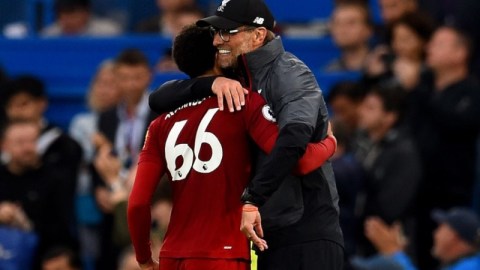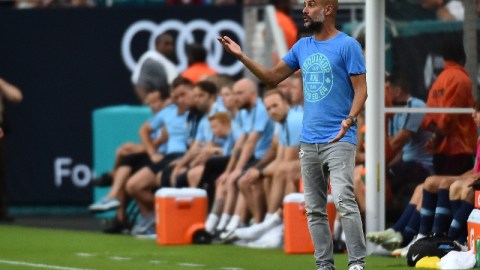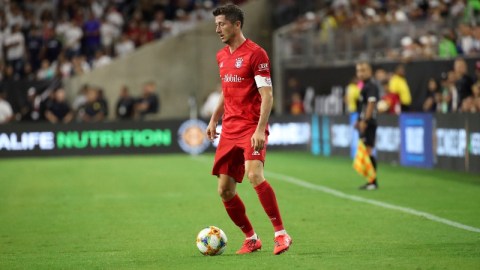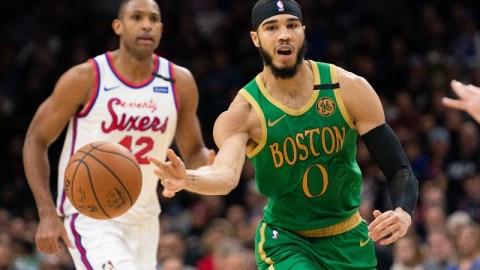The outpouring of support from the U.S. soccer community to Charlie Davies after his near-fatal October 2009 car accident was one of the great stories in the history of the American game. The misplaced venom he now faces from former backers is a disgraceful chapter in the ongoing saga.
The D.C. United forward is suing a Washington D.C. nightclub and Red Bull North America for their roles in the fatal Oct. 12, 2009, car accident that nearly ruined his soccer career and almost took his life. He claims the party’s hosts continued to serve a woman alcohol after she became “visibly intoxicated.” News of the lawsuit was met with shock and disbelief amongst the same supporters who rallied around him just two years ago.
Davies has every right to seek damages from the hosts (if the facts prove their responsibillty under state and federal law) for their patrons’ actions. He is neither ducking personal responsibility, nor looking to make a quick buck.
His actions are part of the healing and reconciliation processes that anyone who suffers great trauma or loss must endure. Seeking justice and holding everyone involved accountable is a critical part of these processes. And the 25-year-old Davies is not finished healing, not by a long shot.
Ashley Roberta’s Family Is Suing As Well
Davies was one of three people in the car that night. The driver of the car — convicted and sentenced drunk-driver Maria Espinoza — was injured along with Davies. The second passenger, Ashley Roberta, was killed.
Roberta’s parents also filed suit against the club and Red Bull. They cite negligence and death by wrongful act and are seeking $40 million in damages.
If their lawsuit is “justified” in the court of public opinion, how can Davies’ be called “frivolous”? The same act of negligence (in the two lawsuits) led to one accident. That it produced different outcomes for two parties does not make one right and the other wrong.
As for Personal Responsibility and the Cash Grab
Since the accident, Davies has admitted the mistake he made in breaking curfew, sneaking out of the team hotel to party and accepting a ride in the car of a woman who was drunk. He assumed responsibility and has paid a heavy toll for it.
He suffered life-threatening injuries that drastically diminished the arc of his professional career. On the night of the crash, he was a 23-year-old national team starter. He had just made the jump to a top European league and was adjusting well. He was one or two good seasons away from a potentially lucrative move to a bigger club in a more prestigious league.
He is now rebuilding his career in Major League Soccer. He spent this season on loan at D.C. United, and it is unclear if he will return to his French club, Sochaux.
Whether he returns to Europe or not, he’s lost more than two crucial years in his development. He lost the chance to shine in that great shop window known as the 2010 World Cup. If he plays in Brazil 2014, he will be 28 years old and nearing the end of his peak years.
The accident put a serious dent in his potential earnings, and the $20 million lawsuit will make up some of the difference between what will be and what could have been.
Davies Is Not Finished Healing
Other than the grisly and permanent scars on his body, Davies’ physical recovery is at or nearing completion. He’s well enough to resume his professional soccer career, and that’s great.
However, the mental and emotional damage he suffered from the accident is still visible. From his disbelief at missing out on the 2010 World Cup to the tears shed after scoring his first goal for D.C. United last March, one could tell that he is still dealing with the effects and aftermath of the accident.
Post-traumatic stress disorder (PTSD), experts say, takes months — even years — of treatment to fully heal from its effects. I’m not giving an armchair diagnosis here. I’m saying it is possible that Davies is still suffering.
He’s overcome the physical injuries. But that’s the easy part of his recovery. The psychological damage from trauma lasts longer and is much harder to conquer than the physical. Seeking justice and accountability is one step in the journey.
The 25-year-old Davies needs the support of his friends, family and the public to clear these final hurdles. There’s no point in fans seeing him through his physical recovery, only to abandon him in this most difficult moment.
Photo courtesy of Flickr/D.C. United



